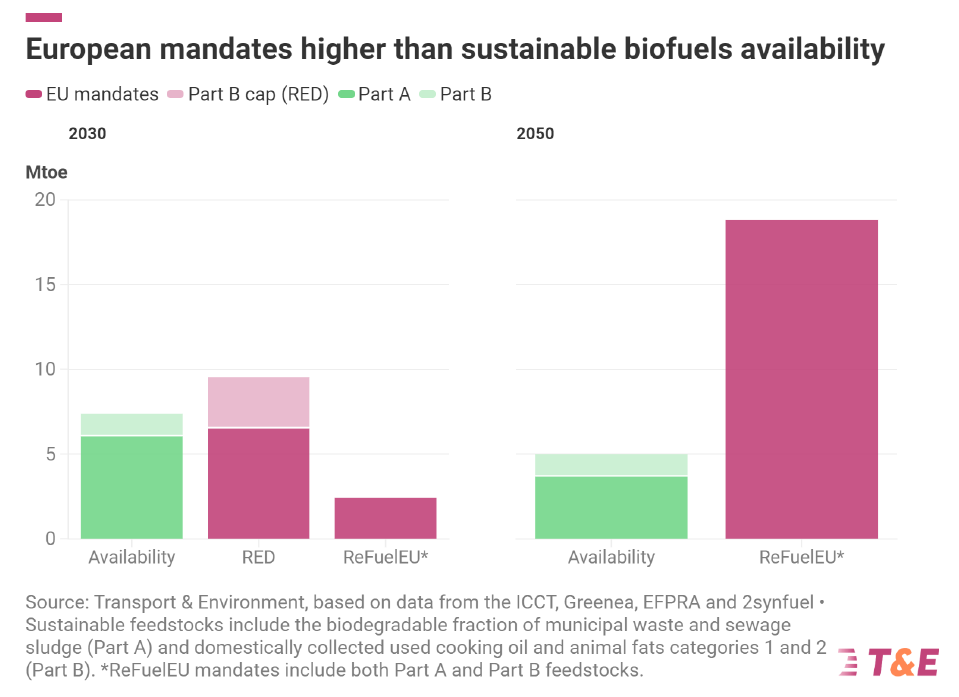Climate NGO Transport and Environment (T&E) advocates that despite their promotion as green solutions, challenges accompany the production of advanced and waste biofuels.
According to T&E, in 2022, these advanced and waste biofuels accounted for 40% of all biofuels consumed in the EU, supported by mandates under the Renewable Energy Directive (RED III) and other EU climate policies. These biofuels are categorized into two parts under RED III: Part A includes materials like straw and forestry residues, requiring advanced processing, while Part B comprises oils such as used cooking oil and animal fats that are easier to extract.
While they offer potential greenhouse gas emission reductions compared to fossil fuels, burning biomass still releases carbon dioxide, and sourcing feedstocks like forestry residues can impact biodiversity and forest health. Additionally, diverting these feedstocks from other industries may lead to indirect emissions if less sustainable materials are used as replacements, T&E notes.

There are concerns about the sustainability and availability of waste feedstocks, such as used cooking oil and animal fats, which are limited in volume and already largely utilized for biofuel production. Furthermore, T&E highlighted that the incentivization of these biofuels can lead to fraud due to their increased value, despite efforts through certification and transparency measures like the EU’s Union Database.
T&E’s recommendations
- Remove problematic feedstocks from the Annex IX list or at least limit their contribution to the RED targets.
- Identify domestic availability before setting targets, with a special attention to the cascading principle and the waste hierarchy.
- Set the target for advanced biofuels at maximum 3.5%, with double counting. Keep a cap on Annex IX part B at 1.7% or lower.
- Require more information from economic operators and enforce rules for more transparency per fuel supplier.
- Tackle fraud with the creation of a dedicated fraud investigation unit and by completely reviewing the certification system.
- Focus on cleaner alternatives for the decarbonization of the transport sector: prioritise direct electrification and target hydrogen and e-fuels for shipping and aviation.
































































